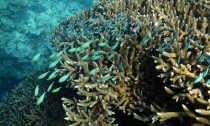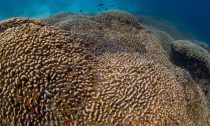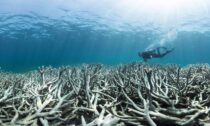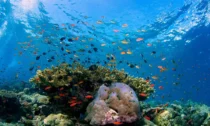
Australia’s coral reefs, including the lesser-known subtropical systems, are hit hard as the world faces its fourth, and most intense, global coral bleaching event on record, the University of New South Wales (UNSW) said on Monday.
Even typically resilient reefs, like those surrounding Lord Howe Island off Australia’s east coast, the world’s southernmost coral reef, are suffering, despite initially escaping mass bleaching seen elsewhere across Australia this year, said a UNSW press release.
More than 83 percent of the world’s reefs have experienced extreme heat stress since January 2023, which is the fourth global coral bleaching event, according to the United States’ National Oceanic and Atmospheric Administration.
Read More












Social Profiles